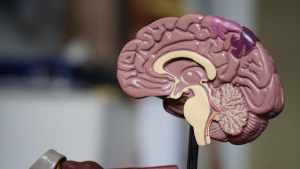In the medical landscape, one of the most challenging and pressing diseases of our time is Alzheimer’s disease. This form of dementia affects millions worldwide, impacting both the lives of those diagnosed and their families. As pervasive as this condition is, scientists and medical professionals have made considerable strides in our understanding of this mysterious and devastating disease. Each day, new studies and trials are being conducted, medicine is being developed, and treatments are being examined in the hope of slowing, stopping, and, in time, preventing this disease. In this article, we delve into the current advancements that are fueling breakthroughs in Alzheimer’s research.
Table of Contents
Unraveling the Complex Genetics of Alzheimer’s
Recent years have seen a concerted push to better understand the genetic factors that regulate the onset and progression of Alzheimer’s disease; many researchers believe this knowledge could hold the key to its potential cure. Several genes, notably the APOE4 gene, have been identified as risk factors. Continued exploration into our genetic makeup, empowered by technological innovations in genome sequencing, offers promising avenues for developing gene-targeted therapies or preventive strategies.
As studies come closer to identifying definitive links between genetics and Alzheimer’s, this Alzheimer’s research is an increasingly important part of the broader quest to unravel the disease’s causes and potential cures. Cutting-edge technologies are paving the way for pioneers in the field, and as we uncover more about this disease’s genetic underpinnings, we are inching closer to finding solutions.
The use of genetic data, coupled with comprehensive health records and lifestyle information, is enabling researchers to build a more holistic understanding of Alzheimer’s, including the interplay between inherited traits and environmental factors. This wealth of information could eventually drive the development of tailored treatments, an approach often referred to as personalized medicine.
Exploring New Drug Therapies and Treatments
Pharmaceutical research is another side of Alzheimer’s research, with scientists worldwide working to develop and test new drug treatments. These drugs primarily focus on two pathways associated with Alzheimer’s: reducing the buildup of amyloid-beta plaques and preventing the malfunction of tau proteins, both of which cause damage and death to brain cells. Recently, a significant development came in the form of an FDA-approved drug known as Aducanumab. This drug helps clear away amyloid plaques, a characteristic Alzheimer’s feature, in the early stages of the disease.
While not a cure, this drug could potentially slow the progression of symptoms and is hailed as a monumental step forward. Other trials are exploring compounds that could protect neurons from damage, boost brain cell health, or modulate the immune system to reduce inflammation—a common feature in Alzheimer’s disease progression. Although we are still a long way from finding a cure, every small trial or advancement brings us one step closer.
The Advent of Biomarkers and Early Detection
The development of biomarkers for early detection and prognosis of Alzheimer’s is a major framework in research. These biomarkers would allow for the identification of Alzheimer’s even before symptoms start to surface, which could influence the course of the disease with early intervention. Currently, the leading prospect in biomarker research revolves around tracking the buildup of beta-amyloid proteins in the brain, which is a definitive sign of Alzheimer’s.
MRI and PET scanning technologies have been instrumental in tracking beta-amyloid buildup, but they are expensive and invasive. Therefore, ongoing research is aimed at developing less invasive, more accessible, and affordable testing methods, such as blood or saliva tests that could also reveal Alzheimer-related biomarkers.
Early diagnosis means early treatment. With the advent of biomarker research and technology for early detection, potential treatments or management strategies might have higher chances of success, possibly slowing or even stopping disease progression.
Role of Lifestyle and Prevention Strategies
While there isn’t any proven way to prevent Alzheimer’s, research is also focusing on the influence of lifestyle factors as possible avenues for the prevention and management of the disease. Diet, physical activity, cognitive stimulation, and adequate sleep have been suspected to play key roles in slowing the development and progression of this condition. Current evidence indicates that dietary patterns mimicking the Mediterranean diet (rich in fruits, vegetables, whole grains, and lean proteins) and regular physical activity may protect the brain and slow cognitive decline.
Interestingly, social interaction and mentally stimulating activities such as puzzles, reading, and writing also appear to be protective against Alzheimer’s. Understanding the interaction between various lifestyle factors and the genetic and pathological markers of Alzheimer’s is essential to potentially developing effective prevention strategies. Although preliminary, these lifestyle-modifying trials provide a glimmer of hope in the ongoing fight against Alzheimer’s disease.
Stem Cell Research
Another promising area of Alzheimer’s research is stem cell therapies. Researchers believe stem cells, due to their ability to repair damaged brain cells, could offer possible treatment routes. Pre-clinical trials have provided initial evidence of this potential, revealing that implanted stem cells could release chemicals that help dying cells recover. Further to developing treatments, stem cells also hold immense potential for studying Alzheimer’s disease in the lab by creating 3D models replicating the patient’s brain cells.
3D models provide a practical and reliable way to test new drugs and understand the disease better. While the implications of stem cell research are substantial, ethical considerations and the technical challenges of ensuring the cells reach the right place and function correctly must be navigated successfully before any clinical applications can be established.
The Importance of Care in Alzheimer’s
While seeking a cure is crucial, so too is improving the care provided to those living with Alzheimer’s. Research continues to develop new strategies for supporting caregivers and individuals with Alzheimer’s to manage the disease, its symptoms, and the everyday challenges it presents. This includes improving home care techniques, therapies promoting cognitive function such as music or art therapy, and support and training for caregivers to manage stress.
There’s also a focus on understanding the disease’s emotional impact—on both the individual and their families—to develop strategies that ensure a greatly improved quality of life. The ongoing research and development in the field create promising possibilities for future Alzheimer’s care, balancing the pursuit of a cure with the necessity of living well with the disease now.
The Future of Alzheimer’s Research
Despite the complexity and the slow progress of current research into Alzheimer’s disease, the field is more active and hopeful than ever before. By leveraging our developing understanding of the disease’s genetics and pathology, coupled with advances in technology, the scientific community continues to explore promising strategies for prevention, early detection, management, and potential cure.
The reality is that Alzheimer’s disease is likely to remain a significant global challenge for some time. It underscores the importance of continuing the investment in and attention to this critical area of research, not just within the scientific community but among policymakers, healthcare professionals, and the public at large.
As this article clearly illustrates, while there’s still much ground to cover in the quest for an Alzheimer’s cure, major advancements have been made in understanding and managing the disease. This progress instills hope that a world without Alzheimer’s is not just a wish, but a coming years. The future of Alzheimer’s research is undeniably bright and has the potential to change millions of lives. The advancements discussed above are only the beginning, with much more to come as the fight against Alzheimer’s continues.






